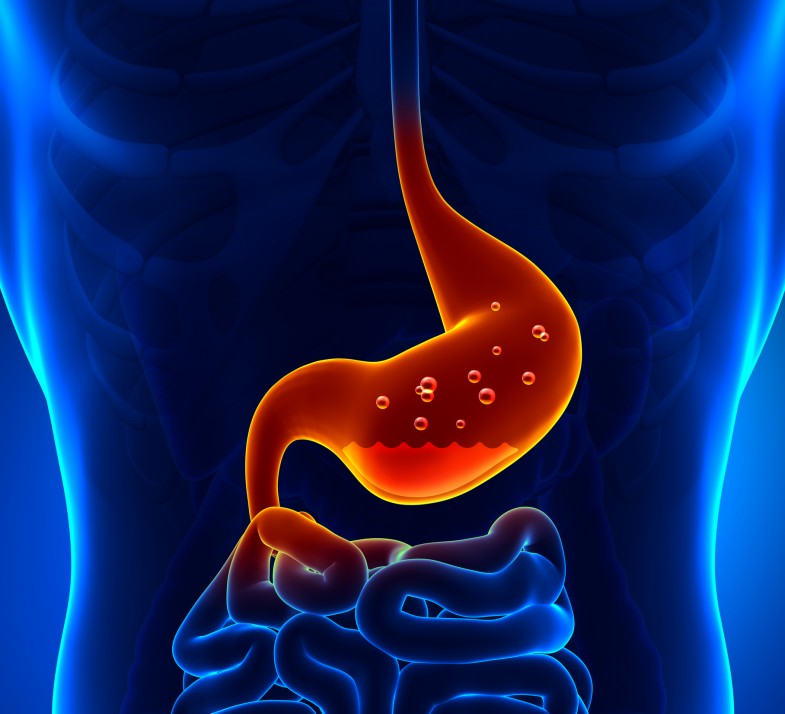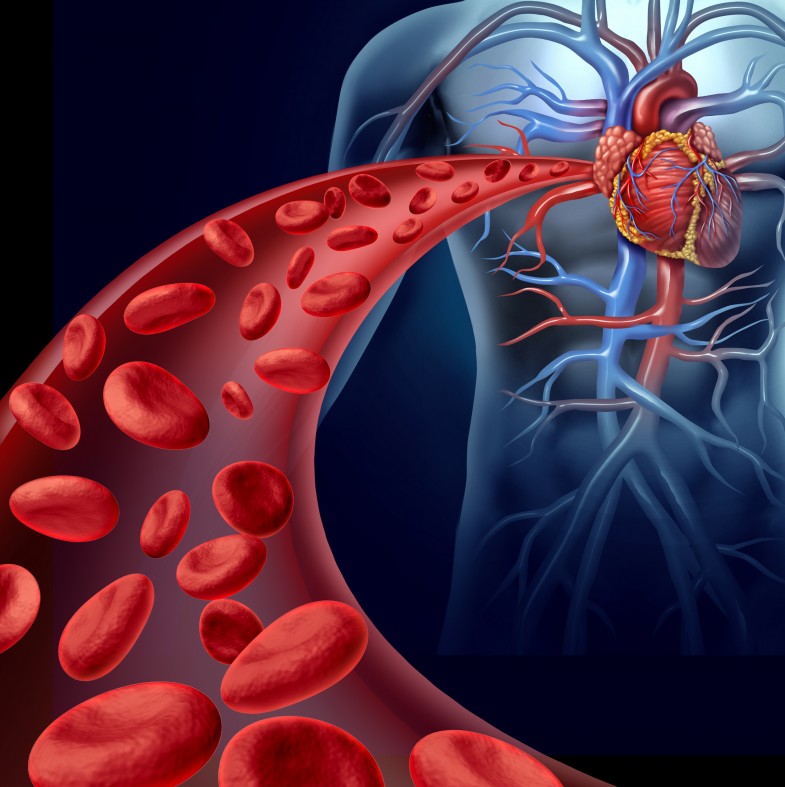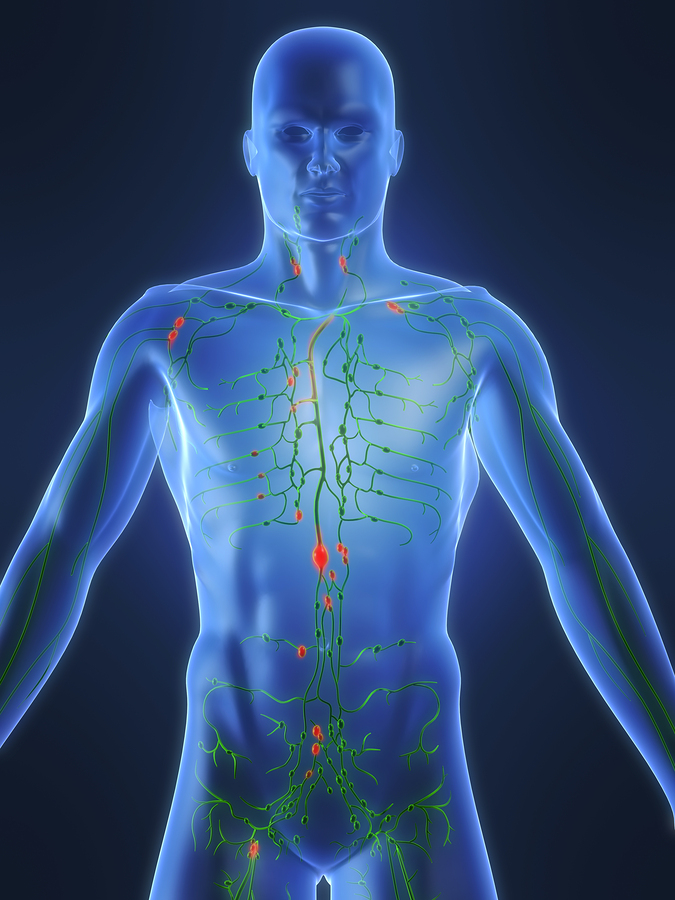Have you ever walked around my home feeling like a thick blanket of fog had invaded your brain.
Staring blankly at your computer screen, wondering, “what am I supposed to be doing right now?” walk into a room and think, “why did I come in here?” Have you ever been at a store and wonder, “why am I here? Now, what was I supposed to get again?”
Have you ever felt so foggy in your brain that you couldn’t focus on tasks or concentrate on anything…at all? Have you ever almost forgotten to pick your child up at school or that you had an important meeting? I have. And it’s the worst feeling.
You know, that one where you feel that pit in your stomach…that knot telling you you’re forgetting something but you don’t remember what that is. While I was in the throes of thyroid disease, this happened often. It was debilitating. I felt like a fool. I found myself embarrassed often…forgetting names, appointments and to-dos. There was no lighthouse in my brain to guide my way to shore…to my thoughts and ideas. I wondered if I was losing my mind.
Has this ever happened to you?
One of the many and MAJOR symptoms, or clues, that your thyroid may be imbalanced is the experience of having brain fog. It’s one of the most common complaints I hear in my practice and it’s one of the first symptoms we work on banishing to help clients reclaim their lives.
Are you losing your mind?
We have these immune cells in our brain called microglia. 10-15% of all cells in the brain are microglial cells. This is important to note because they are a powerhouse cell which mount the body’s first and main active form of immune defense in the central nervous system…..brain fog and a crazy nervous system, sound familiar?
Anyway, when these microglial cells get agitated by inflammation from a thyroid imbalance perhaps brought on by our diet or lifestyle, they mount a pretty potent attack on the brain and create that feeling of brain fog.
This is the same process linked to disorders such as Parkinson’s, Alzheimer’s and other inflammatory conditions.
It’s all connected.
When we’re working to reverse a thyroid condition, we have to address multiple systems in the body at the same time. This is why there is no magic bullet, no quick fix to thyroid disorders (man, do I wish there was!) A thyroid imbalance or immune dysfunction is created by a multiple systems break down. So, when we want to banish that brain fog, we MUST look at several systems – the brain, the belly, our detox pathways, diet and lifestyle.
5 ways to start banishing brain fog
Remember those 5 areas we need to address initially to jump-start healing? Here are simple ways you can address each area effectively and start seeing some serious relief.
1. Heal the gut
Inflammation can start in the gut and the gut-brain connection is undeniable. We could discuss the science behind this all day but let’s talk about some quick tips to start lowering the inflammation in your gut and your brain.
Whether it comes to thyroid health, losing weight, halting the autoimmune response, reducing inflammation or ridding yourself of draining symptoms like brain fog, healing your gut is the first place to start. So, let’s talk about some real world strategies.
Trade your cup of Joe for a cup of bone broth.
Say what?
Cooking the bones, tendons, skin, and other parts of the animal that we don’t otherwise eat to make bone broth releases many beneficial vitamins, minerals, and other health-promoting substances into the broth in forms that are easy for our bodies to digest and use.
For example, bone broth contains collagen, proline, glycine, and glutamine that are great for your health, as well as minerals like calcium, magnesium, phosphorus, silicon, sulphur and others that reduce inflammation, support the immune system, and even help heal allergies and other disorders.
Gelatin, which is produced from the breakdown of collagen, is particularly helpful for those of us with leaky gut and other digestive issues, because it can actually soothe the lining of the digestive tract and help heal and reverse dietary allergies and food sensitivities.
All of these substances are also anti-inflammatory, which is incredibly important for people fighting autoimmune disorders like Hashimoto’s and who want to limit inflammation in the brain.
Get your probiotic on.
As part of any gut health program, you’ll want to include potent probiotics to repopulate your gut with the good bacteria.
Support your digestive juices.
If you frequently suffer from heartburn, it might not just be the foods you eat, but an underlying problem of poor digestive enzyme activity. Betaine HCL + Pepsin can help increase stomach acid and enzyme activity. One caveat, though: you don’t want to supplement with HCL for so long that your body doesn’t rely on itself to produce stomach acid. This is a great jump start as you begin healing the gut but you should taper off use as your gut is repaired. This is a supplement that I recommend you take under the supervision of a knowledgeable practitioner.
2. Go gluten-free
Gluten molecules resemble thyroid tissue. They are highly inflammatory in the gut and the brain. If you have intestinal permeability (leaky gut) or a sensitivity to gluten (which most people with thyroid conditions do), your body will mistakenly attack your thyroid believing it is attacking the gluten molecules.
What happens with autoimmune disease is that the body is having an overactive immune response against substances and tissues normally present in the body. In addition, the thyroid gland is connected to so many of the body’s systems including gastrointestinal function, stomach acid production, adrenal hormone metabolism, changes in brain chemistry and liver detoxification. So, when a gluten molecule escapes through the walls of the digestive tract and the body starts attacking the gluten, it inadvertently begins to attack the thyroid as well, continuing its destruction.
That’s pretty serious stuff. Educated doctors and thyroid researchers insist that if you want to stop the destruction of the thyroid and the brain, you must stop eating gluten.
You may have heard all of this before, but now is the time to start acting on it. If you truly want to heal your thyroid condition and eliminate brain fog, you’ve got to love your body enough to put your hands up and drop the croissant.
“How can I give up my pasta or pizza? What will I eat instead?” you wonder. “Will I ever be full?”
I promise you will and there are loads of delicious, naturally gluten-free foods out there. Giving up gluten seems unappealing and daunting, I know. But you can shift your thinking from giving something up to gaining something back: your health, a clear mind, an energized body. This is not an act of self-deprivation, my friend; it is an act of self love.
I’ve been through it, and before I started living gluten-free, I wasn’t sure how I would ever succeed. But I did succeed. And I learned loads of tips and tricks and have a host of new recipe resources to boot. I began feeling so much better after parting ways with gluten that I don’t even feel like I need it anymore. Sure, a piece of fresh-baked bread smells delightful but my body doesn’t actually crave it anymore. And if this former chef and total foodie can do it, so can you. So go ahead…just do it!
3. Make sleep a priority
Poor sleep is a typical symptom for people with thyroid disorders and often it is just accepted as something you have to live with as part of having the disease. The problem is that insomnia or restless sleep must be addressed so that your endocrine system can be supported in order to heal.
We can’t be flippant about a sleep disorder. Too often, it’s accepted, solely medicated or totally disregarded. Discovering the most effective way to get to sleep and sleep well is a must for loving yourself back to health.
Here’s why:
1. Sleep loss can cause weight gain.
2. Lack of sleep can make you feel depressed.
3. Sleep deprivation can lead to serious health problems like heart disease, heart attack, heart failure, irregular heartbeat, high blood pressure, stroke, diabetes.
4. Lack of sleep affects libido.
5. Sleepiness impairs judgments and makes you prone to/causes accidents.
6. Sleep loss affects intellect and memory. (uh, hello!)
7. Lack of sleep ages your skin. (Yikes!)
Sound familiar? A lot of the symptoms of not getting enough sleep mirror the symptoms of thyroid, autoimmune disease and brain inflammation, so you must make sure you’re getting enough sleep to be sure that your symptoms aren’t being caused or exacerbated by exhaustion.
Simple tricks for getting to sleep
- Maintain a regular sleep-wake schedule. I did this by trying to go to bed 15 minutes earlier each night for 5 nights until I was able to fall asleep by 10pm. I also set my alarm for 6am each day so I could exercise. After 3 days on the 10pm–6am schedule, I started waking up at 6am naturally and was noticeably less foggy.
- Avoid caffeine, alcohol, nicotine, and other chemicals that interfere with sleep. I can’t stress this enough. I know you’re tired now in the morning so you like your cup of coffee but giving it up could be the difference between sleepless nights and sound rest. I went from drinking coffee several times a day to doing a caffeine detox. I don’t need or crave caffeine anymore. It’s pretty amazing.
- Make your bedroom a comfortable sleep environment. Keep your bedroom uncluttered and cozy with the right bedding, blankets and a heater (if you need it).
- Establish a calming pre-sleep routine. For instance, read something spiritual or meditative before bed. It’s actually a great time to do a 10–15 minute meditation.
- Go to sleep when you’re tired. Don’t stay up to watch the end of that TV show or keep reading to finish a chapter. Research shows that our body wakes itself up after 10pm. Once you’re up later in the night, you’ll get a second wind and may struggle with falling asleep altogether.
- Keep lights low in the evening. Bright household lights and light from computers and other electronic devices can disrupt messengers in your brain from eliciting the sleep response.
- Don’t nap close to bedtime. Eating a light meal really helps with this one. If you eat a heavy, carb-laden dinner, you produce chemicals which will make you sleepy and want to take a nap. Taking a nap after dinner is gonna make it hard to fall asleep when it’s best for your body. Six to eight hours of restful sleep each night is crucial for maximum rejuvenation. Interestingly, studies have shown that your body is able to rejuvenate better if you fall asleep in the hours before midnight. Meaning, if you are sleeping eight hours between 10pm—6am, you will feel more rested than if you slept eight hours between Midnight and 8am I can attest to that as I’ve tested it out myself. If I fall asleep by 10pm, I can jump out of bed at 6am and am actually energized enough to exercise. When I stay up late watching TV or reading and go to sleep at 11 or 11:30pm, I’ll drag in the morning even if I’m sleeping the same amount of time.
- Try setting yourself a sleep schedule and sticking to it. If you feel resistance to this, ask yourself why. Make a list of the best excuses you can think of, and then ask yourself, “Is X more important than my health?” Be honest with yourself and remember that loving yourself enough to give yourself what you need is the key to supporting healing.
4. Dry brush the ditz away
Dry brushing is a great way to stimulate your lymphatic system and my favorite way to start the morning. It’s quick to do (takes about 5 minutes) and I swear, it’s better than a cup of coffee. Yes, I just said that! BETTER THAN A CUP OF COFFEE. When you dry brush, your skin becomes invigorated, your being is enlivened and your brain wakes up! Once I’m finished dry brushing, I’m ready to start the day.
Do you know what your lymphatic system does? I didn’t until mine stopped working. Your lymphatic system is an extensive network that exists virtually everywhere in the body. It serves as the body’s primary system of immunity as it functions to create immune cells. Like a cleaning crew, this system also flushes toxins out of the body and moves fat to the circulatory system.
Toxins in our body can create inflammation everywhere in the body, including the thyroid, the gut and the brain. Remember those microglial cells, they don’t like what toxins do in the body so eliminating our toxic burden is key to keeping things calm in the thyroid, gut and brain.
Lymph, the clear liquid moved through the body via your lymphatic system is full of white blood cells (lymphocytes) which are your body’s main tools when there is an immune response. Having an efficient and functioning lymphatic system is crucial to good health.
Here’s more on why dry brushing is so good for you:
- It relaxes the nervous system. Although dry brushing can feel a little odd the first few times you try it, those bristle are helping to stimulate nerve endings in the skin which refreshes your nervous system and helps keep ‘ya calm.
- It increases circulation, buffs and smoothes your skin (great at exfoliating dry skin) and is touted to reduce the appearance of cellulite (I haven’t done it enough yet to support that claim but you can bet your bum I’ll tell you if it works!)
- It helps with nutrient absorption, removal of toxins and improves blood circulation. This helps you stay healthy and keeps your body running more efficiently—and is totally key for supporting your thyroid health. Simple steps to dry brushing at home:
-
- Buy a good dry brush
.
- Make sure your skin is dry (best to do this before your bath or shower).
- Begin from bottom and move upwards. You’ll use gentle circular motions or longer smoother strokes or a combination of both. I like to do smooth strokes for the legs but round strokes for the ankles, knees, bum, tummy, and elbows.
- Always start at your ankles and move toward your heart. Make sure to move the brush in the same direction.
- When you get to your back brush from the neck down instead toward your lower back.
- Be careful with sensitive skin and never brush over sores, shingles, scars, sun burned areas or areas with skin cancer.
- Buy a good dry brush
Now that I’m in the habit of dry brushing, I can’t go a day without doing it. It really helps banish brain fog. You’ll notice its power too!
5. Oxygenate that noggin’ with some exercise
Having a fit brain and body does a world of good for brain fog. When I’m feeling fatigued and foggy, I jump on a rebounder for 5 minutes.
Physical activity provides much needed oxygen and blood flow to the brain. It stimulates the expression of hundreds of protective genes, and creates Brain-Derived Neurotrophic Factor (BDNF), which is necessary to grow new neurons and help them survive. BDNF also protects your mature neurons from damage from stress, environmental toxins, and even traumatic brain injury.
Aerobic exercise has been shown to increase brain volume and to improve memory, concentration and executive function (complex thought and planning ability). Being sedentary, on the other hand, destroys your brain’s vascular network, which is why Alzheimer’s disease is now being called “type 3 diabetes” by some researchers.

Photo:sclwl05.de
Your brain on the rebound
Ever heard of the exercise known as rebounding? You probably did it when you were a kid—without even knowing it! Rebounding is basically just bouncing on a trampoline or rebounder. It’s low-impact aerobic exercise that can jump-start your metabolism (pun intended!)—oh, and P.S. It’s pretty fun!
Rebounding is gentle enough for people who suffer from thyroid disorders and other chronic fatigue disorders, but it’s powerful enough to get your blood pumping and your body working. Plus, it helps your body detoxify by stimulating the lymphatic system and sweating out the toxins.
Rebounding reduces your body fat; firms your arms, legs, thighs, abdomen, and hips; increases your agility; strengthens your muscles overall; provides an aerobic effect for your cardiopulmonary systems; rejuvenates your body when it’s tired, and generally puts you in a state of mental and physical wellness. Wow!
That’s a lot of goodness from this one simple exercise. You can find an affordable rebounder and store it under your bed or in the closet. Mine sits in our closet and I hop on it for a minute or two before getting dressed in the morning.
Big Bonus Strategy
Reduce sugar!
Unfortunately, on a general level, sugar inhibits all healing. Sugar creates inflammation in your body and brain, turns off your body’s appetite-control function, leads to weight gain and belly fat, feeds candida (yeast) and has a host of additional toxic effects. All of that sounds terrible enough but it gets worse.
Many people with thyroid dysfunction seem to be especially sensitive to refined sugars or even consuming too many natural sugars. When you constantly consume sugar, you literally burn out your adrenal and thyroid glands and inflame your brain. There is a risk of damaging or even destroying the thyroid. If you don’t reduce or eliminate sugar in the diet, there is a risk for permanent damage and that’s no good!
Sugar can also affect your mood and energy levels.
I am not saying to cut sugar out of your diet forever. Fruits definitely have some health benefits as does raw honey, but by eliminating sugar from your diet for a short period of time, you let your body learn to regulate your blood sugar levels, get a better sense of when you’re actually hungry, increase your immune system’s ability to fight off illness, ward off candida infections and keep your brain functioning properly.
We dive deep into sugar detox in The Thyroid Fix in 6 but all you need to do to reduce your sugar is literally to stop eating it.
Banishing brain fog really gave me back my life…and it didn’t take that long to do it. By taking a few nourishing steps, like the ones listed above, I was able to see results quickly. So join me! Come out of the fog and see the light. It’s so clear out here….and now I know what I came in here for!
Source: hypothyroidmom.com




































